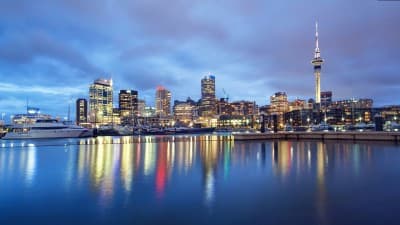Clarus (Formally Firstgas Group) says the Climate Change Commission has delivered a final recommendation that acknowledges the important role zero carbon gas may have in reducing New Zealand’s carbon emissions by 2050.
“To reduce emissions, we need to rule options in, not out”, says Paul Goodeve, CE Clarus (Formally Firstgas Group).
“The CCC’s final advice is more supportive of preserving our ability to decarbonise multiple energy distribution channels, including using zero carbon gases like biogas, bioLPG and hydrogen.”
Goodeve says the Commission was right to shift from bans on energy sources to transition to low-emission alternatives. The Commission has removed the draft ban on new gas connections, and an initial recommendation to replace gas appliances with electric alternatives.
“We know Kiwis value the option of having gas in their homes and we welcome this more open minded approach by the CCC,” comments Goodeve.
“People can have the confidence to continue to use gas and connect to gas today, while Clarus (Formally Firstgas Group) works behind the scenes to decarbonise its gas pipeline network,” he adds.
Firstgas supports the CCC’s recommendation that Government commits to delivering a national energy strategy to decarbonise the system in collaboration with energy-system stakeholders.
“The CCC acknowledges the wide-reaching benefits of retaining a vibrant gas industry to deliver zero carbon gas. It increases resilience, enhances reliability, and helps to manage risks around energy affordability – particularly if capacity constraints continue in electricity networks and generation sources”, says Goodeve.
The final report recommends Government sets a target for 50% of all energy consumed comes from renewable sources by the end of 2035; supports the development of bioenergy and hydrogen; and evaluates the role of biogas and hydrogen as an alternative use of pipeline infrastructure.
Goodeve says, “The CCC’s final advice leaves open the type of transition modelled in our Hydrogen Pipeline Trial Report – which would see hydrogen blended into the North Island natural gas network from 2030, with conversion to a 100 per cent hydrogen grid by 2050. This would be supported by biogas and bioLPG to offer emissions reductions for all gas users.
“Hydrogen blends of up to 20 per cent reduce the carbon emissions of natural gas users without requiring any change to existing appliances. It also replaces the use of fossil fuels that electricity is not well suited to replace, such as in heavy transport and process heat in manufacturing industries.
“This means gas users can work towards our national target of zero emissions without resorting to electrification or carbon offsets, and without the need to replace their current gas equipment.
“Testing is happening internationally, and some networks are already successfully blending up to 20% hydrogen.
“We are confident the benefits of gas are here to stay in a cleaner future of zero carbon gas”, adds Goodeve.
For more information visit www.gasischanging.co.nz





